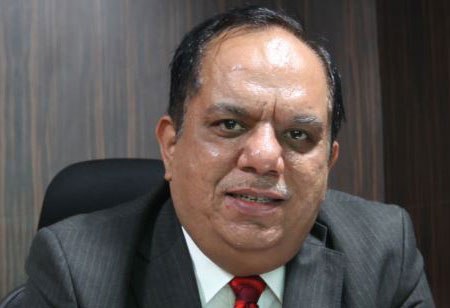By Vijay Sethi, CIO and Head CSR – Hero MotoCorp

Vijay Sethi, CIO and Head CSR – Hero MotoCorp
Hero MotoCorp is one of the world’s largest two wheeler manufacturing companies based in India and has a sales and service network with over 6,000 dealerships and service points across India. Vijay Sethi has around 25 years of experience in manufacturing industry and consulting environment. He has extensive experience in development and deployment of IT strategy, systems and integration projects for Global M&As.
A CIO needs help from IT Consulting organizations at various times– be it in strategy formulation, solution design, selection, implementation, post implementation audit or other areas. In IT consulting community, we have lots of bright and experienced people who have contributed immensely to success of our IT and our organizations and I value their contribution and always look forward to advice from them.
However, during interactions with some consultants, one comes across questions or impressions that the first meeting could potentially become the last meeting or the relationship never goes beyond initial presentation or a one off transaction and the consultants wonder as to what really happened. While reasons of this can be anything from “need of solution by the customer” to “competency of consultant”, there are times when some “interesting questions” or “behavior” are the deal breakers. I request consultants to possibly considering changing them.
During meetings, some of the “interesting questions” include:
“Can you tell us something about your products and markets?” I feel consultants should spend a few minutes on Internet to get answers to all these mundane questions. I am sure you wouldn’t have to come all the way from Chennai or Mumbai or Gurgaon or in some cases even overseas to ask these questions.
“What are your pain points?” (and my response most of the times is “When I have a pain I go to doctor immediately and will not wait for a meeting” or in some cases I say “Why do you think we call consultants only when we have pain– we could also be meeting to discuss projects that may be for future and not for addressing any immediate pain”.)
“What are the problems being faced by your industry?” (what do I say – Sir, few minutes back you introduced yourself as a domain expert in our industry with decades of experience globally, you should know this or are you trying to take my test.)
“Are you doing something new this year?”(No Sir, we are still trying to finish projects we started in 1990 and we have called for this meeting to request you to help us in that.)
“It has to be a healthy, win-win relationship based on professional interactions and mutual trust where the consultants value time and knowledge of CIO and his team and vice versa”
And then come the most dreaded questions at the end of encounters as above. “How would you like us to take it forward? Can you introduce us to your team members with whom we can now engage for detailed discussions?” What does one say? “Thank you, it was indeed an enriching experience for me and my team and your first step was the last one, please excuse us now” or say “I do not want my team to accuse me of subjecting them to torture.”
Some of the other things I would like consultants to change:
Having said all this, I also know that we, as IT people in our companies need to respect the contribution of consultants and not run them down just because we are ‘Customers’ and ‘Customer is King’. It has to be a healthy, win-win relationship based on professional interactions and mutual trust where the consultants value time and knowledge of CIO and his team and vice versa.
We use cookies to ensure you get the best experience on our website. Read more...